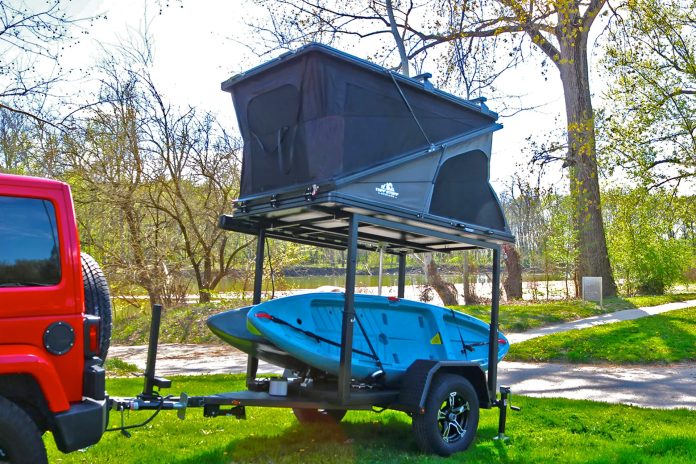American trailer builder Hiker has unveiled the GearLoft, a departure from its traditional teardrop-style trailers. This ultra-versatile skeletal hauler is designed to transport large gear such as kayaks and canoes, offering two full levels of storage and an optional electric-lift penthouse tent. The GearLoft provides outdoor enthusiasts with a flexible solution for both hauling equipment and camping.
Adjustable design for oversized gear
The GearLoft stands out with its flat, open deck measuring 4 by 6 feet (1.2 by 1.8 meters), ideal for carrying oversized items like kayaks, paddleboards, and bicycles. Unlike other trailers that use solid cargo boxes or flatbeds paired with camper boxes, the GearLoft’s open design offers more space and versatility for various types of gear.
One of the key features is its length-adjustable tongue. The three-position tongue system can slide forward to accommodate longer items, such as 12-foot (3.6-meter) canoes. This system offers up to 42 inches (107 centimeters) of added length, adjusting the total trailer length from a minimum of 10.5 feet (3.20 meters) to a maximum of 14 feet (4.3 meters).
Height-adjustable exoskeleton
For those who need to transport tall gear or stack cargo high, the GearLoft’s exoskeleton adjusts between 55 and 70 inches (140 and 178 centimeters) in total height. This height adjustment is a standard feature, allowing users to customize the trailer based on their specific hauling needs. Buyers can also opt for an electrically actuated lift to automate the height adjustment process.
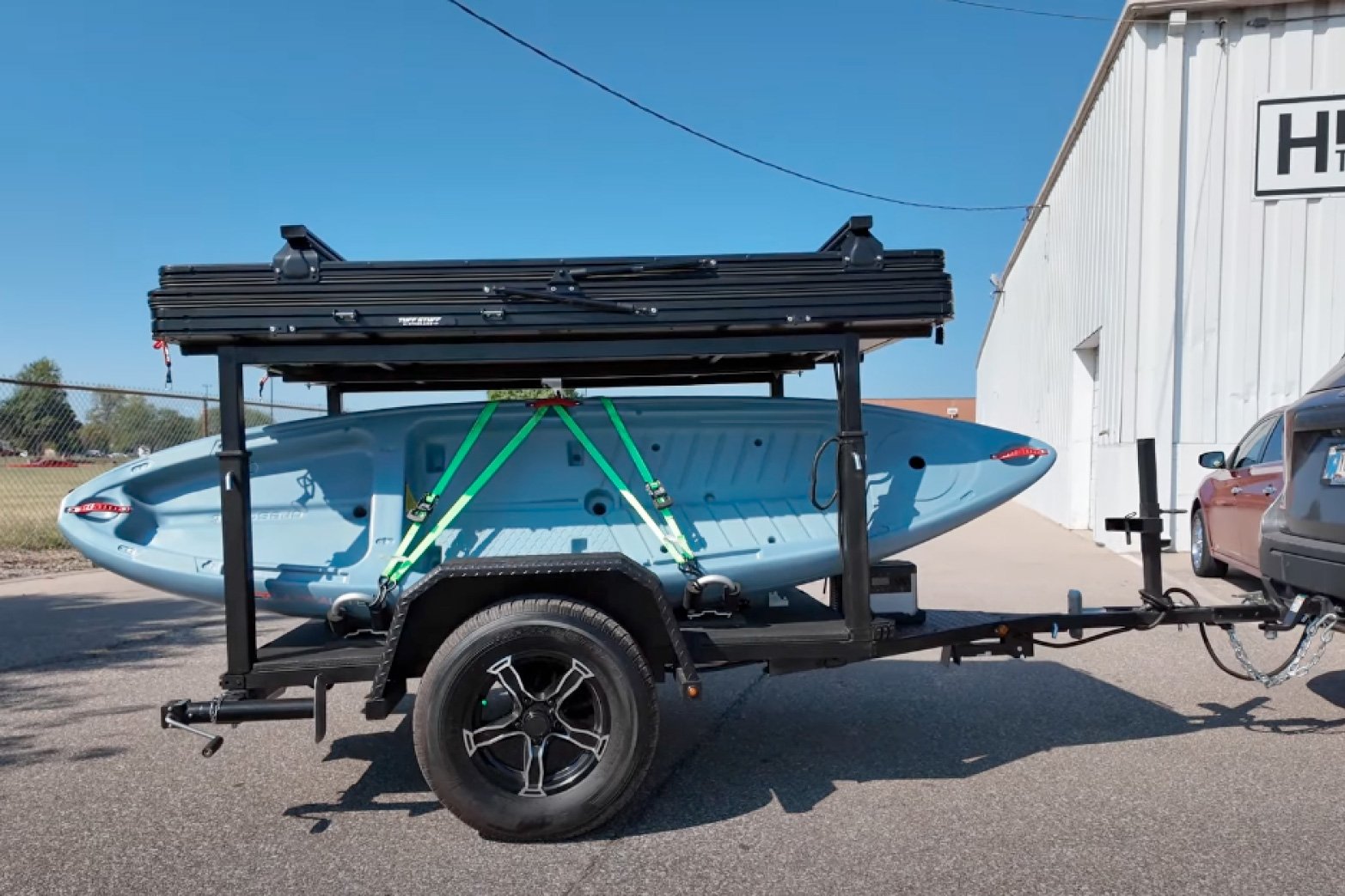
Versatile upper bars for additional storage
The upper bars of the GearLoft are designed to serve as the foundation for a second level of storage. They offer a dynamic load rating of 400 pounds (181 kilograms) and a static capacity of 850 pounds (385 kilograms). This capacity allows users to carry additional gear such as water tanks, cargo boxes, awnings, and rooftop tents.
By adding a rooftop tent, the GearLoft transforms from a basic cargo trailer into a simple micro-camper. Hiker showcases the GearLoft with a double-action hardshell tent from Tuff Stuff Overland. This Z-framed rooftop tent travels as a low-profile hardshell and can be opened halfway into a wedge or fully into a roomier camping cube.
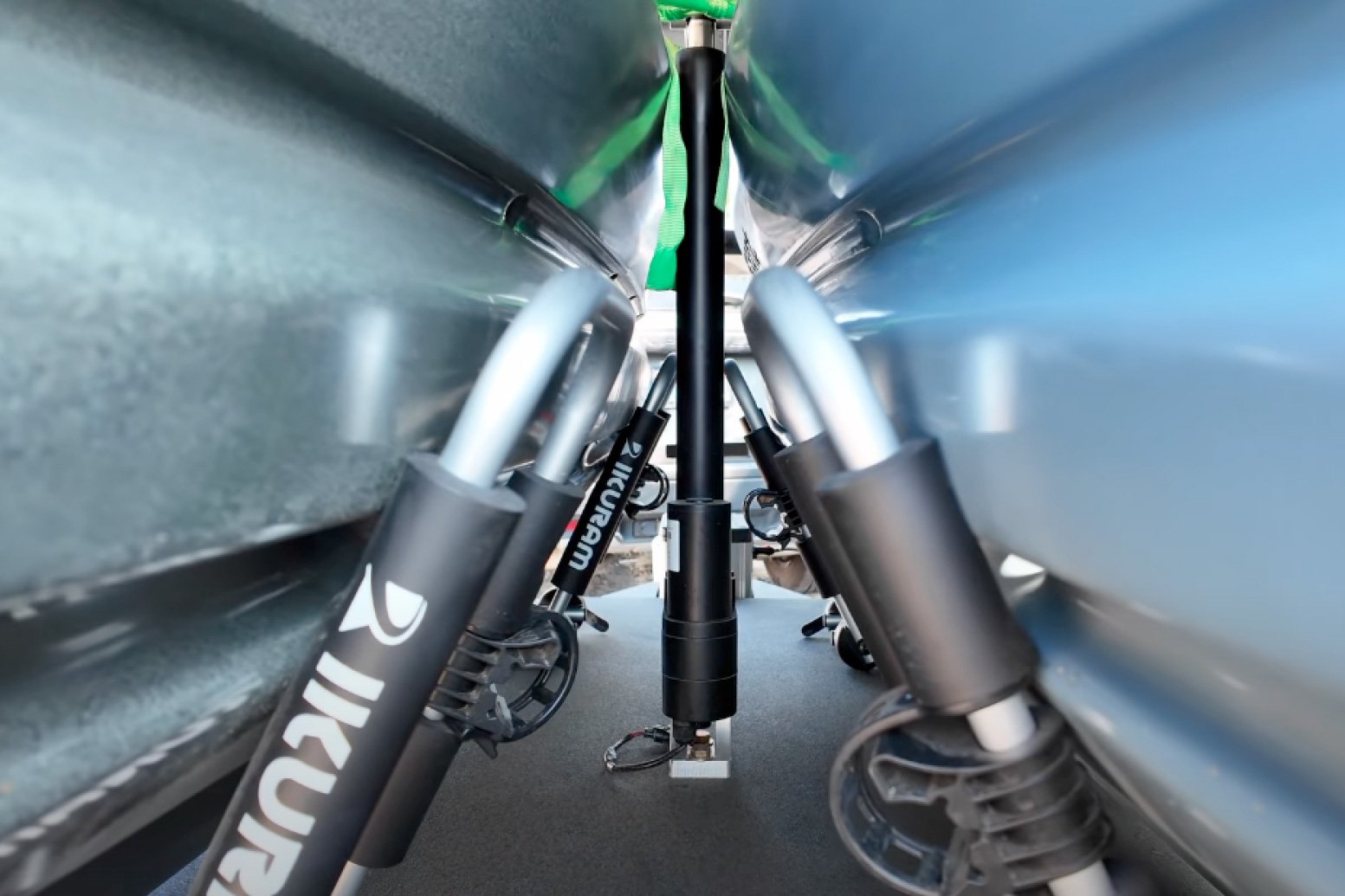
Rooftop tent options
Tuff Stuff offers two models compatible with the GearLoft:
- Alpine 51: A two-person tent weighing 248 pounds (113 kilograms).
- Alpine 61: A larger tent accommodating two to three people, weighing 274 pounds (124 kilograms).
Both tents feature an aluminum shell that collapses to a sleek 8-inch (20-centimeter) ride height, excluding the rooftop crossbars. Even with the tent installed, users can still carry additional gear on the included crossbars atop the tent. The Alpine series crossbars offer a load capacity of 728 pounds (330 kilograms). However, when mounted on the GearLoft, the capacity decreases due to the tent’s weight, leaving up to 152 pounds (69 kilograms) for extra gear while staying within the trailer’s 400-pound (181-kilogram) dynamic load rating.
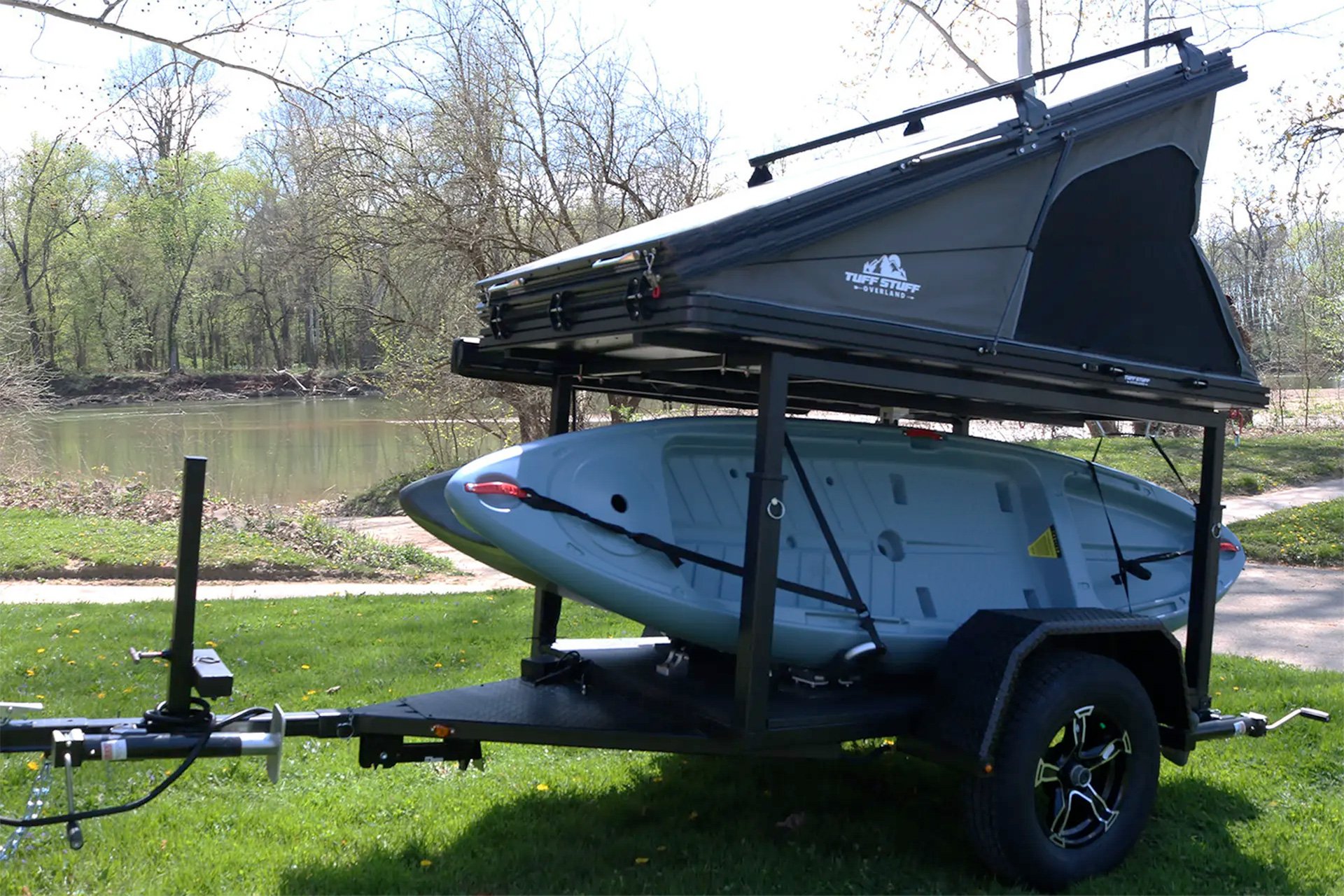
Specifications and performance
- Dry weight: Approximately 625 pounds (284 kilograms).
- Gross vehicle weight rating (GVWR): 1,900 pounds (862 kilograms).
- Payload capacity: 1,275 pounds (578 kilograms).
- Ground clearance: 11.5 inches (29 centimeters).
- Axle and suspension: Rides on a straight axle cushioned by leaf springs.
These specifications make the GearLoft suitable for various terrains and hauling needs, providing ample capacity for both gear and camping equipment.
Pricing and customization
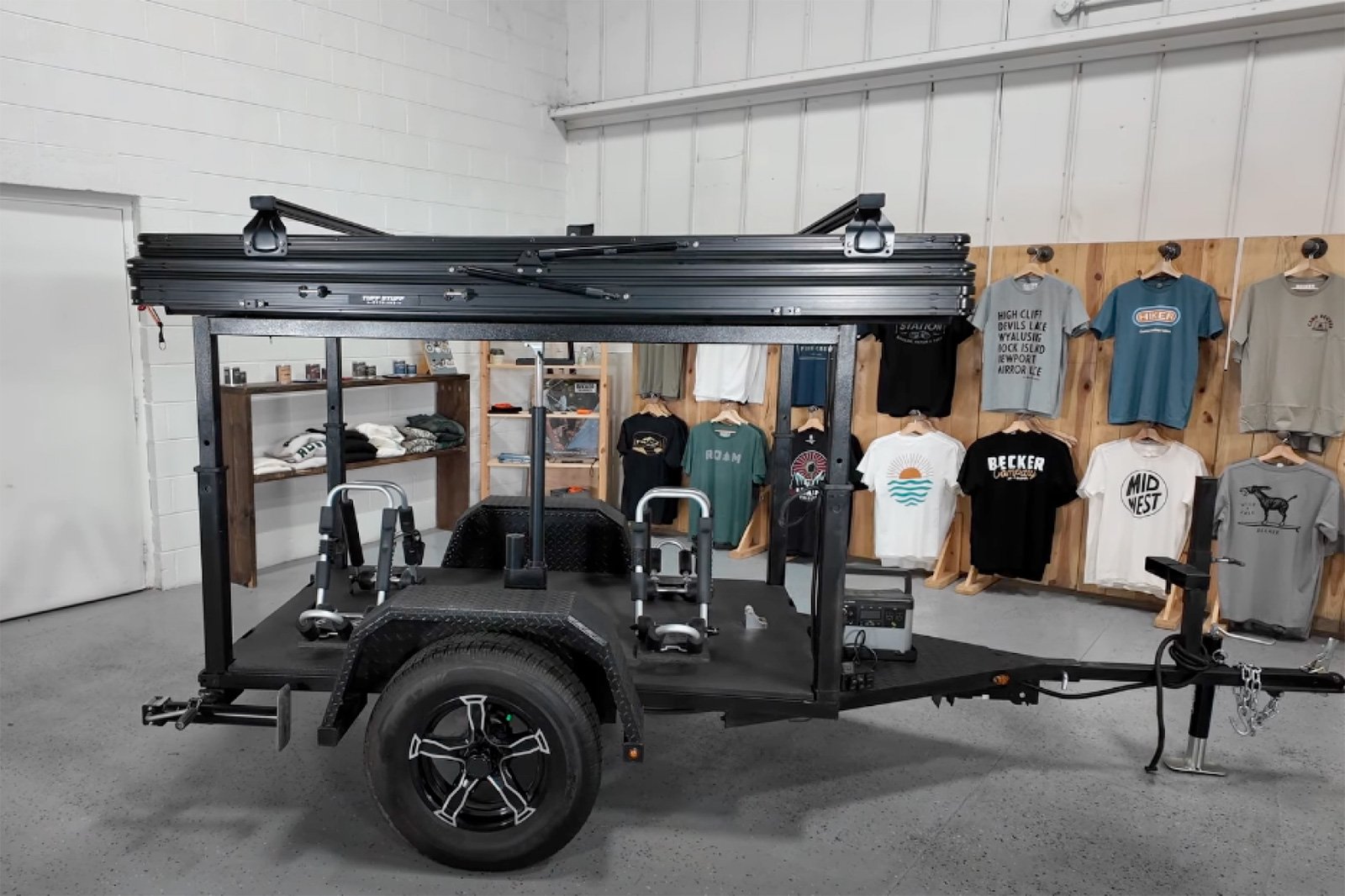
The GearLoft trailer starts at $4,499 as a basic, empty exoskeleton hauler with a lower gear deck. For those interested in the micro-camper variant, Hiker estimates a price range of $5,624 to $9,423, depending on the selected rooftop tent and hardware.
Hiker offers customization options for users who have their own gear carriers or mounts. The company states it can install customers’ gear carrier or mounts to the trailer for $75 per level. Additionally, Hiker can source gear mounts for customers who prefer assistance in selecting the appropriate equipment.
Source: Hiker Trailers

